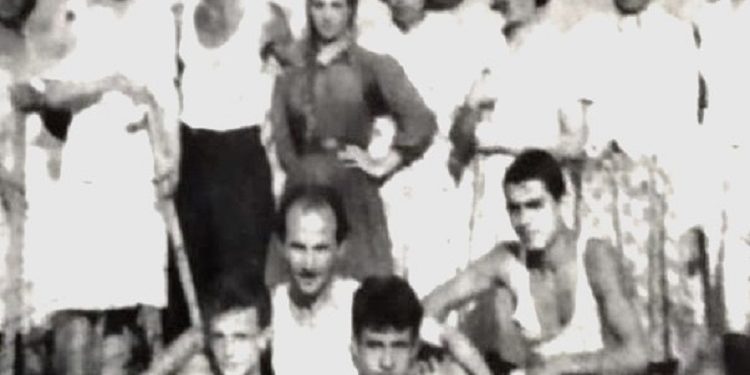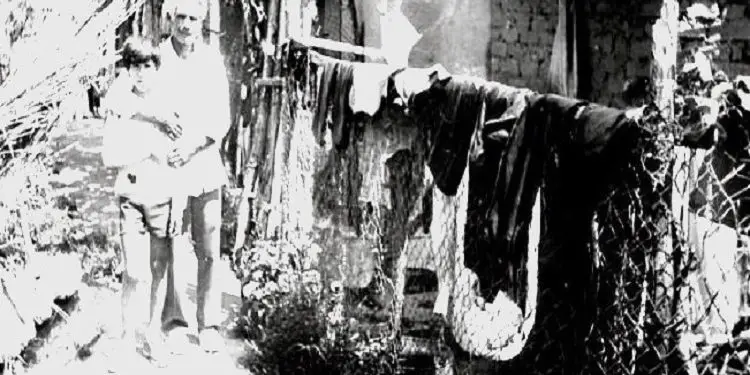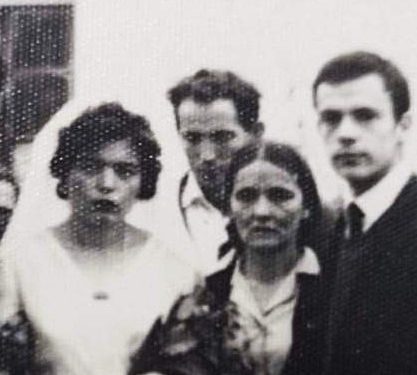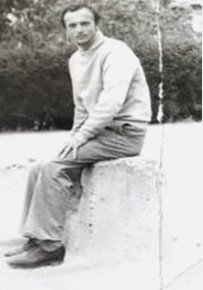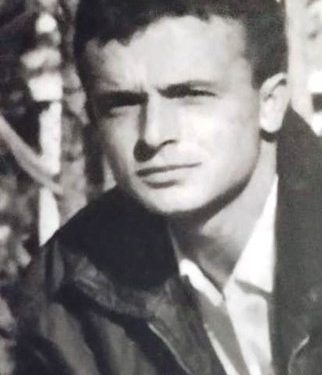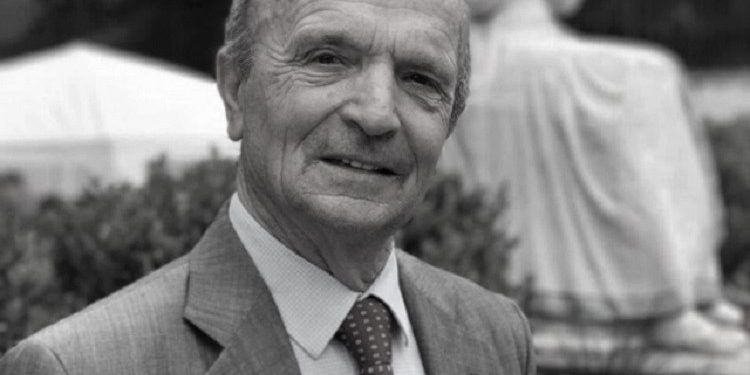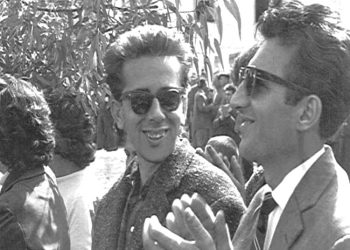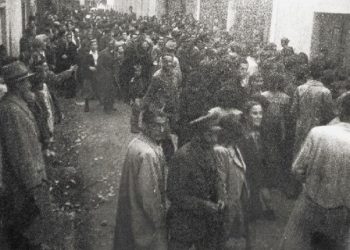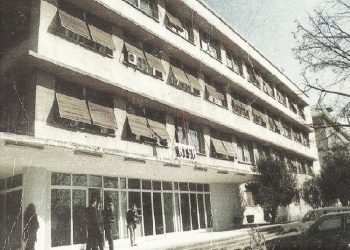By SIMON MIRAKAJ
The fifth part
“Camps under the shadow of Tomorri, 44 years of internment”
– Memories –
Memorie.al/ I put these memories down on paper after a long period of hesitation. This is probably because the subjects were always fresh in my mind, which followed me mercilessly during the years after the fall of communism. But there comes a moment – when time takes its course – and the images of horror and suffering came fading to me – almost the suffering passed into oblivion. Then I decided to repeat the most impressive events – first in my mind – until they took the form of these narratives. As dim as these accounts may seem – they create the idea of the harsh reality and misery of the camps.
Continues from last issue
IN THE GAZA CAMP
(February 9, 1969 – July 4, 1989)
Internment in Giza
There was a time when operative Kosta Sillo said that we will remove some families from Savra and transfer them to Gjaze (Lushnje). The transfer to Gjaza was made on dt. February 6, 1969. It was a cold day with little rain. The road was a bit long, from Savra 16 km.
When we approached and entered the Gjaza sector, we saw from the car that there were two roads that were no more than 100 m. There were three rows of houses. In one row was an old building, called “Red Corner” and used for meetings.
In the middle row were houses made of bricks and plastered and painted with white paint. One of these houses was the office of the head of the sector. The third row was of old brick houses. There we found several families, such as that of Markagjon, Talo, Xhydollari, Meraja, Peroni, Nela, Kaziu and Agolli.
The families that fled from Savra were the families of the Mirakajs, Cuba with his son Zefi, Kunia with his two sons, Simon and Sokol, with his wife Vali and their two children Leon and Vilma. The families of the Dinellars from the district of Dibra, mother Rukija with her two sons, Tomorri and Sazan, with their wives and children.
Sultan Dine family, with son Dine. The Fuat Dine family, with his wife, Meleqe, the Ismail Spahiu family, with his wife and two children, the Ahmet Kolgjini family with his wife, son, and sister. Xhevit Matjani family, with his mother, wife, and children. We lived in Gjaza for 20 years, in very difficult conditions.
Gjaza Hut, 1969
I was seeing the Gjaza hut, where I spent 21 years of my life. In the evening appeal, the Sigurimit operative read the names of the families being transferred from Savra to the Gjaza camp. Gjaza was 15 km. away from the city, as km. there weren’t many, but we were isolated. Our isolation began in 1968. From the Savra camp, we could no longer go out to the city, even though it was only 4 km away.
To go out into the city, permission was needed from the Security operative. Before these years, we were provided with a circulation permit, this permit allowed us to move in the area of Lushnje, from morning to dinner. The movement always started after appearing in the appeal, in the morning and at dinner.
This movement was therefore interrupted in 1968, when the intensification of the class struggle had just begun. The tightening was accompanied by the departure from Savra of some families, more “dangerous” (according to them). Transfers were sorted by Sigurimi, the coldest months of the year. After the evening appeal, operative Kosta Silo, communicated the names of the families that would be transferred to Gjaza:
Families; Mirakaj, Dine, Matjani, Spahiu, Bajraktari and Markagjonët, had fled a year before. With the departure of Markagjon, we realized that we didn’t have him there for long either.
The transfer found us spiritually prepared; “So – continued the operative – you who heard the names, at 7 in the morning, you should be ready because the car is coming to pick you up”. Upon returning to our shack, we began to prepare the spoils.
That night we did not sleep at all due to the visits of people, who gave us courage and expressed regret, which they expressed with tears. At 7.00, the car was in the yard, which was filled with people. The Security operative was standing near the driver. We started to load the spoils into the car. The neighbors and many friends of the camp did not let us touch the spoils; they started and finished them, since we did not have much.
It was cold, it was raining a little bit, the car was uncovered, the booty was covered with plastic, so were we, my brother Sokol, my sister-in-law Vali with our two children, Vilma, 4 years old, and Leon, 2 years old. The sisters left the mother that night, because she was suffering from a heart attack. “Here – said an old man with tears in his eyes – and the sky is crying for you”. We began to hug and part with the sister and her husband, with the niece and nephew, with the people who had come to say goodbye.
We got into the car, it was uncovered, as I told you, they were chosen for such purposes. It was a psychological pressure that was put on us, but we were used to their sadism and we were not impressed. The car started the road to Gjaza. We waved goodbye to relatives until we left. The rain did not stop, the road seemed very long. “Eu… where was this Gjaza”?!
We had gone once many years ago to play football with the military unit that was there. I couldn’t remember the distance, the trip took an hour. Finally we arrived.
The car stopped in front of the brick house. The houses were built in the 50s, by internees. My sister-in-law came down with the two children, then we too. Markagjonët, Kristina, Çelestina and Gjoni had come out to wait for us and help us. We arranged the spoils in two rooms. In one, my brother with his wife and two children, in the other, me and my mother.
After the people left, we went out to see the yard; we found it necessary to build a hut, which would serve as a kitchen. The next day after the morning roll call, we started to register for work. We were assigned to different work brigades. The work was difficult, the State Security had given the order, through the operative of the area, Kosta Silos; “enemies, work as hard as possible”. We faced it with a lot of sacrifice and dignity. Unfortunately, we shot young people… but politically, they did not defeat us, they could not make us collaborators of the Security.
An open economic war began, hard work, which was paid less. Control was strict, twice a day appeal, in most cases, three times. When a delegation came to Tirana, we had to appear 3 times a day at the appeal, as well as three times, all days of holidays.
In the morning, the head of State Security, Til Qosja, tells us that; “Today the chief operating officer is coming and has a meeting with you, at 11:00 a.m. The brigadiers have been notified not to take you away with work.” The meeting would be held at the red corner, at 11 o’clock.
At the head of the table, sat the pariah of the sector. We sat on the benches, after 5 minutes, operative Kosta Sillo and chief operative, Apostol Çepeli, arrive. The meeting started with the head of the sector, after he finished, the boss asked: “Are these going to work?”
“They are leaving, with the exception of Frida Sadedini”, his subordinates answered. Frida was approximately 70 years old, had studied in Austria and served 18 years in prison.
“Who is Frida”, asked the boss? – Frida stood up.
“Why don’t you go to work”?! – said the chief operating officer.
“Lord, by… the old one, you don’t get new legs”, Frida told him and sat down. For a few seconds, there was silence; the boss did not expect that answer, his face turned red. Meanwhile, the person in charge of the appeal addressed the chief operating officer:
“How much is the right of these to move”?
Apostol Çepele answered: “These have the right to move, 700 ha.” land that your farm has, if they cross it, a bullet to the forehead”!
This was the presentation made by the chief operating officer, for the “class enemies”, as they called us.
Baftjar
Baftjari was from a village called Mazhaj. That village, from the internment camp in Gjaze of Lushnje, was approximately two km. away. Baftjari had earned the right to work on the state farm and this distance didn’t seem like anything to him.
He did this route twice a day, in the morning when he came to get the work plan and after work, he left for home. Baftjari said, after we were informed, that at the beginning when we went to Gjaza, the State Security had opened the word through their people that some families of criminals will come.
“I,” he said, “because I was afraid of you, I fell on the way to go home, around, instead of going for an hour; I did it for an hour and a half”! – And laughed.
He was married and had two or three children, (I don’t remember), but he also had a lot of humor. I happened to be in a brigade with Baftjar, shooting because we were working close to the canal or line. When we sat down to rest, we would make small talk.
“Baftjar,” I told him, “but the woman works”?
“Work and get points in the cooperative”.
That’s how it was paid, with points.
“Now we have a very difficult time for the toads, to raise them. We had a cow, but now we can’t keep it. There is no milk, because they planted our wheat near the house and they don’t let us graze it. ‘Keep it, – they tell us, – on the side of the canal’. We had chickens, – they tell us: ‘Keep them in the coop, because they eat the wheat. I sold the cow.
I try to get some money out of it”! – and laughed.
“They give you money”?
“No, they buy me a pair of shoes. A man came to me whose wife had died several years ago and he wanted a bride. I said: How do you like it, do you like it with beef? He told me: I want a bride, not a cow! Good, good, because there is one in the village, whose husband died and she has a son, that’s why I told you she loves him dearly…”!
“Good, with beef, with the boy, because I also have a daughter”.
“So I fixed them, he gave me 2,000 ALL for a pair of shoes. With the money, I bought the reed books”.
After a while we sat down to eat. When Baftjar took the corn bread out of his bag, which was as thick as wheat bread, I remembered that he has wheat bread and I said: “Baftjar, are you eating wheat bread?”
“What, this was corn bread”! I threw the bread to the cow and she didn’t eat it, because the bread was made from hybrid corn, but from the last of the corn. There were two eggs with the bread. I took the bread out of the bag. I had bought a lot of bread and divided it in half.
“We,” I said, “Baftjar”.
“I’m taking it to the reeds.”
“Take food now, when we finish work, come with me and goes to Gjaza, because I will get some bread for you and for the toads”. We headed home and I headed to the store to buy bread. I say to the seller: “Give me two loaves of bread, because my friends have come.” I took the two loaves, when Baftjar saw them, his face shone and he took one loaf.
“When the toads see me that I have brought them whole wheat bread, they will fly for joy”. We parted with Baftjar, saying good night to each other. We remember Baftjar today with respect, because he was hardworking and honest.
The difference between us and Baftjar was that he went to his own house and he didn’t have that insecurity of ours, where every day, insecurity threatened us for our lives, since we were called “enemies”. Memorie.al
The next issue follows




